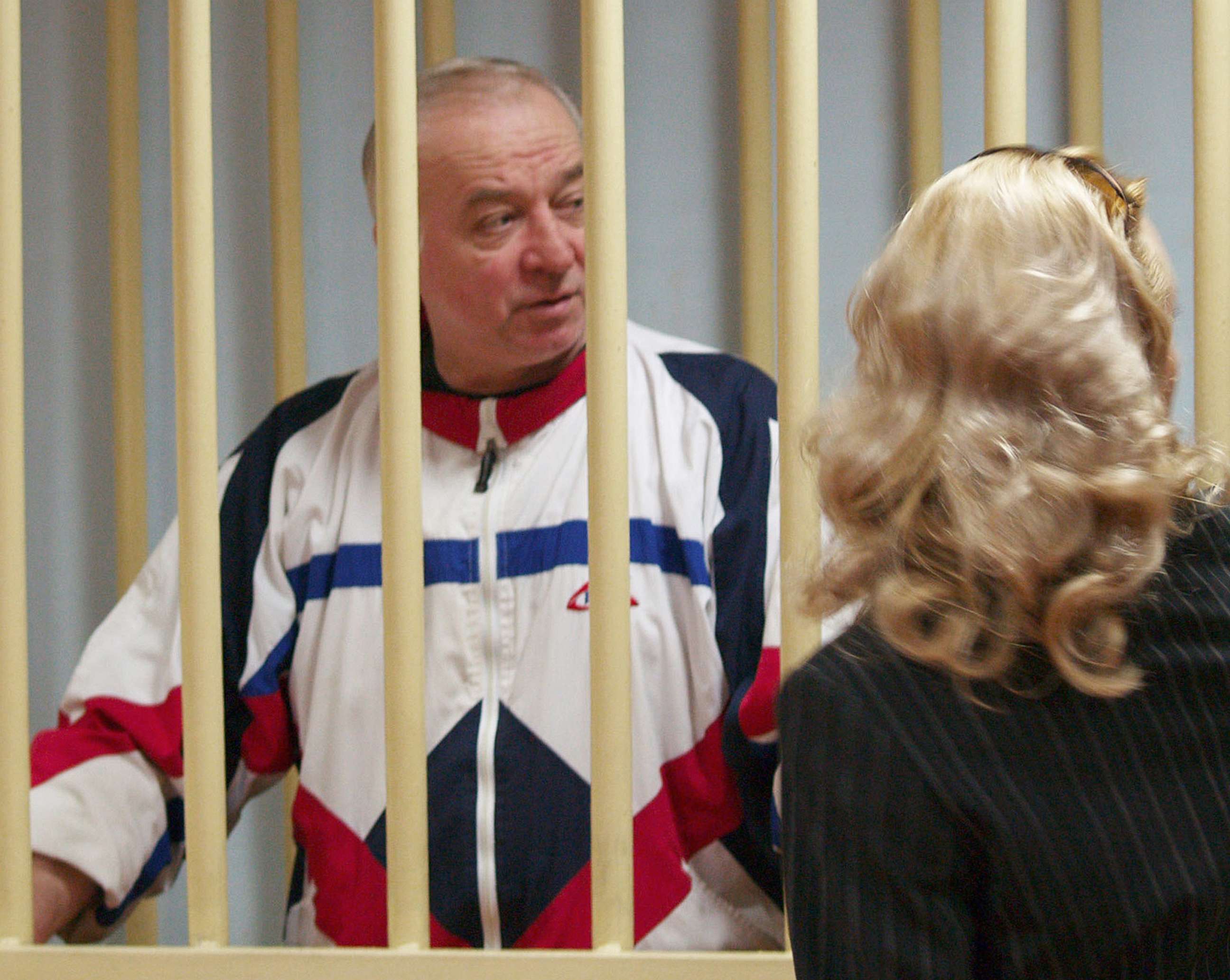Ex-Russian spy 'deliberately targeted' with nerve agent in England
British police have identified the chemical behind the attack on an ex-spy.
SALISBURY, United Kingdom -- Police and forensic experts wearing protective suits and gas masks worked steadily into the night in Salisbury on Wednesday, as the investigation into the chemical attack on a former Russian spy and his daughter picked up pace.
Britain’s counterterrorism network announced that Sergei Skripal and his daughter Yulia Skripal were exposed to a nerve agent on Sunday afternoon. They were spotted convulsing and slumped on a park bench by local residents who alerted the authorities.
Police have now identified the chemical agent in question, but declined to name the substance or details on how it was administered. Police added that the investigation has turned to focus on identifying the perpetrators behind what they described as a "deliberate targeting" of the Skripals.

Nerve agents are toxic chemicals that attack the body's nervous system and are usually absorbed through the skin. Typical symptoms from being exposed to nerve agents are consistent with witness accounts that described the Skripals in the park where they were spotted as "frothing in the mouth" and displaying unusual, erratic behavior.
Britain’s outgoing counterterrorism chief Mark Rowley said that "hundreds" of officers and specialists were investigating hours of footage, witness testimony and forensic evidence, trying to put together a detailed timeline of the two victims' Sunday afternoon.
He told media outside Scotland Yard on Wednesday evening that "having established that a nerve agent is the cause of the symptoms leading us to treat this as attempted murder, I can also confirm that we believe the two people originally who became unwell were targeted specifically."
Emergency response personnel who arrived first on the scene were treated on Tuesday. One officer, Sgt. Nick Bailey, according to police, was in "critical condition" on Wednesday.
The home secretary, Amber Rudd, told "Good Morning Britain" on Thursday morning that she had been advised the police officer remains in treatment but had improved, and was engaging and talking with authorities.
"I've spoken to Mark Rowley this morning that the two targets are still in very serious condition," she said. "The policeman is talking and engaging, so I'm more optimistic for him, but it's still too early to say. This is a nerve agent. We are still treating it as very serious."
In an interview with ITV News Prime Minister Theresa May was asked whether she would expel Russian ambassadors from the U.K.
"We will do what is appropriate, we will do what is right, if it is proved to be the case that this is state-sponsored," she said.
Both Skripals are being treated at Salisbury District Hospital.
Skripal, 66, was a former colonel in the GRU –- Russian military intelligence. He had been spying for Britain’s foreign intelligence service MI6 when he was convicted of treason in Russia in 2006. In 2010, he was part of a high-profile prisoner exchange with the United States, and sought refuge in the U.K. where he had been living a quiet life in the small city of Salisbury.
Earlier in the week, foreign secretary Boris Johnson told Parliament that the government would respond "robustly and appropriately" if it transpired that the attack was carried out by a foreign government on British soil.
Similarities with the 2006 poisoning of former Russian spy Alexander Litvinenko have caused speculation as to whether Russia is somehow involved.
A British inquiry into Litvinenko's murder found the Kremlin to be responsible.
A Russian Foreign Ministry spokeswoman said that foreign media had used the Skripal incident as part of an "anti-Russia campaign."
The Kremlin has said that Russia has no information on the attack in Salisbury, but would cooperate with the investigation if asked by the British.
Yulia Skripal, 33, was visiting her father before the two fell suddenly ill on Sunday, reportedly after they visited Zizzi’s, an Italian restaurant in the center of the city.
Four days after the incident the restaurant remains closed and guarded around the clock by police. A nearby pub has also been closed since Tuesday.
Outside the city, in a nearby town called Amesbury, a business park has been cordoned off by police as a precaution.




